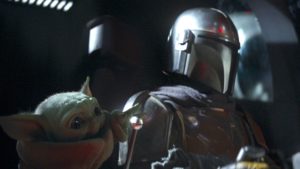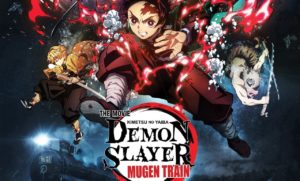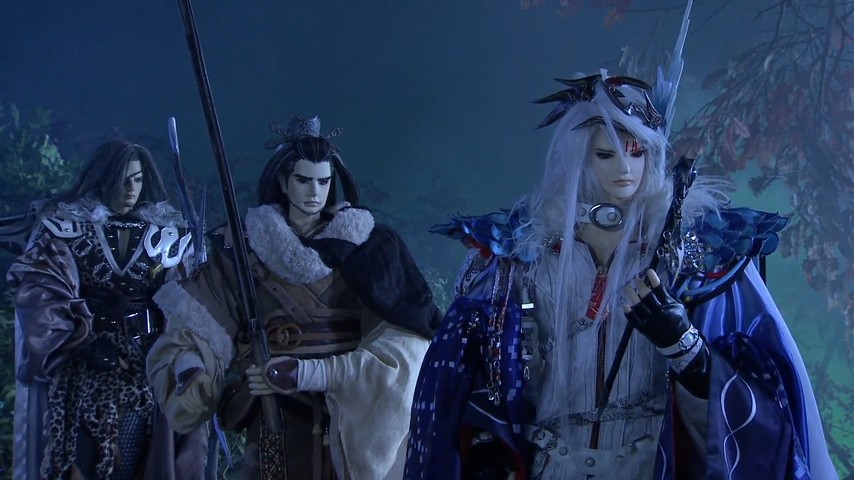
Okay, bear with me for a second. What if one of the most prestigious anime writers around, Gen Urobuchi (Psycho Pass, Madoka Magica), teamed up with a team of Taiwanese puppet animators to make a Wuxia TV show (Chinese fantasy martial arts). That may sound like a weird combination of things (it definitely is), but the end result is zany, hilarious, and infectiously propulsive. To give a little context, Thunderbolt Fantasy is set in a mythical world inspired by Chinese Wuxia stories. Through superior martial prowess, magic armaments, and a knowledge of spells, characters soar through the air delivering a flurry of whirling blows and otherworldly attacks. Wuxia influence aside, Thunderbolt Fantasy‘s most immediately noticeable attribute is that this is all brought to life with Taiwainese glove puppetry. Glove puppetry is an art form that dates back to 17th century China, but has recently seen a resurgence in Taiwan largely due to an ongoing Wuxia series called Pili. As a matter of fact Thunderbolt Fantasy was made as a collaboration between the company that created that show, and Urobuchi’s company Nitroplus.
The story follows Shāng Bù Huàn, a wanderer who accidentally enrages The Bones of Creation, an evil lord who is dead set on acquiring the mythical sword the Tiān Xíng Jiàn. After defending a member of the Seal Guardians, a faction whose sole duty is to guard the blade, The Bones of Creation marks Huan for death. Realizing that the only path towards saving himself is to defeat the despotic lord, Huan sets out on a quest to free the land from his influence. However, since his opponent‘s fortress is virtually impenetrable, he must team up with the Enigmatic Gale, a sorcerer and trickster, to recruit a team that can complete this seemingly impossible mission.
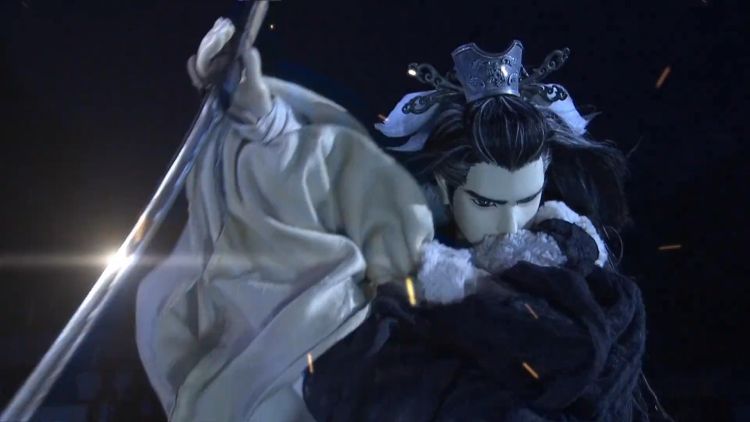
Yes, that is all as crazy as it sounds, and yes this show has the best character titles that I can think of. Other highlights include the Screaming Phoenix Killer, and The One-Eyed Impaler. Throughout the 12 episodes of its first season, Urobuchi maintains this air of finely woven melodrama, letting forth a cavalcade of glorious one-liners and unstoppable cheese. While it’s “assemble a team and do a thing” premise isn’t inherently interesting, what would appear to be a straight forward journey is defined by crazy character turns, diverse locales, and a bottomless amount of reverence for this world and it’s combatants. While there are many detours along the way, the unified purpose of the end goal holds all of this ramshackle insanity together. And nestled between all of the goofiness, we get statements about the nature of legacy and perception of great figures, with the frequent deceleration that “things are not as they seem” echoing from its various character turns.
But perhaps the most obvious selling point of this production is that there is really nothing else like it. Mainstream puppet animation in the west is mostly limited to Muppet films, but here ornate figures are used to depict the apotheosis of martial prowess. While at first this makes for a jarring experience, as this type of show is virtually nonexistent outside Taiwan, once you acclimate to the nature of the movement and cinematography, it truly becomes an experience like no other. The puppets themselves are incredibly intricate, representing a fantastical take on Chinese-inspired costume design. Equally impressive is how they move in such lifelike fashion, conveying the power of fist and sword blows, while also emulating the floaty physics of its live action Wuxia counterparts. There is a melding here between the artistry of the puppets themselves, and the significant skill it requires to perform such precisely choreographed fight sequences.
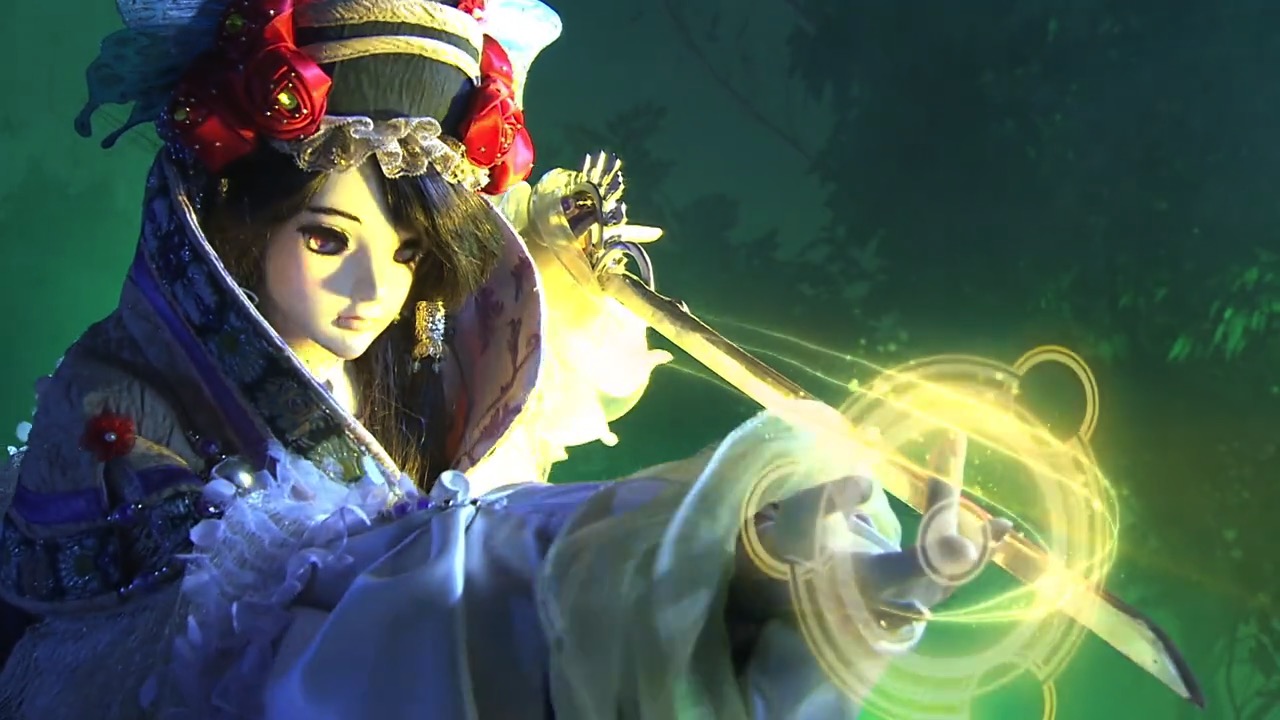
In tandem with the puppet animation, a variety of post-processing effects are applied to create fantastical special moves. These types of outrageous special attacks bears resemblance to the trappings of battle-shonen anime. This combined with its Wuxia influences are part of what makes the fight sequences so wholly unique, making for a singular blend of Japanese and Chinese culture. Despite the medium of puppet animation, the fight choreography feels grounded, and although characters will summon divine blades, shoot concentrated energy out of the tips of spears, and blow people apart with dull swords, there is an undeniable visceral impact due to the use of actual physical objects. Characters may be performing feats that defy physics, such as spinning through the air like a drill, or running up the sides of buildings, but the use of puppetry makes these shenanigans feel somewhat more aesthetically consistent than its live action counterparts. And on top of just being impressive from a technical perspective, there is enough diversity in move sets, abilities, and a steady buildup of the mythos around its antagonists, that the endless onslaught of baddies stays engaging throughout.
In addition to its impressive visual qualities, it is also held up by a wonderfully self-indulgent Urobuchi script that seems like it must have been an absolute blast to write. The dialogue is in equal turn self-serious and self-aware, building a sense of awe and gravitas around its legendary fighters. The exceedingly dramatic staging and writing come together to create moments that are simultaneously hilarious and genuinely cool. Its characters are as endearing, as their motivations are mysterious, an underlying tension lingering between the members of this expert band of warriors.
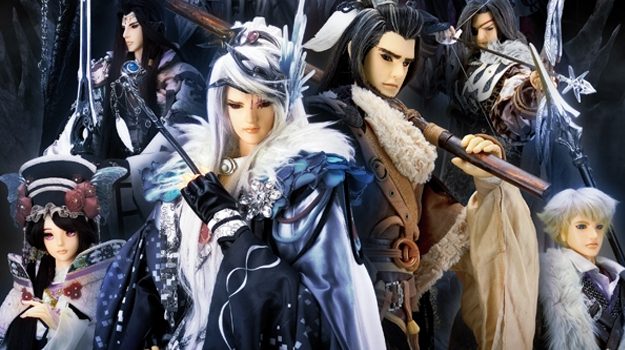
Truth be told if you are looking for a deep character study, or some sort of thematically engaging tone piece that conveys the nuances of the human condition, Thunderbolt Fantasy probably isn’t the show to scratch that particular itch. But if you are looking for an endlessly hammy slugfest, full of zesty stingers, mind-boggling costume design, inventive battles, with sharp pacing, and well-reasoned statements about the nature of legacy, then this is an easy recommendation. Season 1 is on Crunchyroll, and the first episode of Season 2 just aired this past Monday. Admittedly, Season 2 starts off as relatively exposition heavy, but the first few minutes of Season 1’s initial episode act as a fairly perfect encapsulation of the series as a whole, and a great entry point to gauge interest. If you have even a passing interest in Wuxia, martial arts stories, anime, puppetry, or are just interested in seeing something unlike anything else you’ve ever seen, Thunderbolt Fantasy is easily worth a look.

